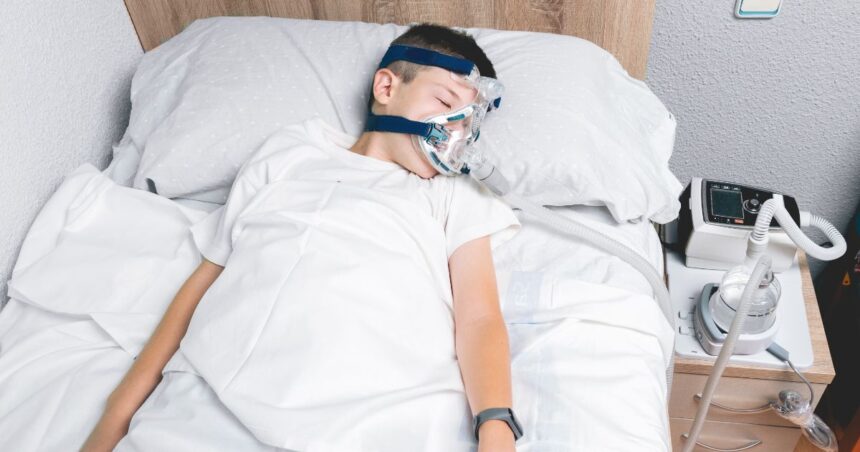Getting a good night’s sleep is important for everyone, but sometimes, it can be more complicated than it should be. Many people struggle with sleep disorders without even realizing it. Sleep studies are a powerful tool that helps doctors understand these problems and find ways to improve our health.
I want to explain how sleep studies work, what they diagnose, and how they can help you and me sleep better.
What Are Sleep Studies?
A sleep study is a test that happens while you sleep. It takes place in a special room that looks a lot like a comfortable hotel room. During the study, doctors use special equipment to watch your sleep patterns. They monitor how often you wake up, how you breathe, and how your heart beats.
This information helps doctors understand what is wrong with your sleep. Sleep studies are often done in sleep centers or hospitals, but some versions can be done at home.
Common Sleep Disorders Diagnosed by Sleep Studies
Sleep studies help diagnose many types of sleep disorders, including:
- Sleep Apnea: A condition where breathing stops and starts repeatedly during sleep.
- Insomnia: Trouble falling asleep or staying asleep.
- Restless Leg Syndrome: A strong urge to move your legs, usually while trying to fall asleep.
- Narcolepsy: Sudden and uncontrollable episodes of falling asleep during the day.
These are just some of the issues that sleep studies can help diagnose. Knowing what’s wrong makes finding the right treatment easier and finally getting the rest you need.
The Importance of Diagnosing Sleep Disorders
Diagnosing sleep disorders is crucial for overall health. When sleep disorders are left untreated, they can lead to serious health problems like high blood pressure, heart disease, diabetes, and even depression.
Getting enough sleep helps the body repair itself and keeps the mind sharp. By diagnosing sleep disorders, doctors can help prevent these health issues before they become serious.
For many people, finding out what’s causing their sleep problems is the first step to feeling physically and mentally better.
How Sleep Studies Work
If you need a sleep study, sleeping somewhere other than your bed might feel strange, but the process is quite simple. When you arrive at the sleep center, a technician will help you get comfortable. You will be connected to sensors that track your brain activity, heart rate, breathing, and movements.
The sensors are painless and allow you to move freely. Then, you simply try to sleep as you normally would. The data collected during the night gives doctors the information they need to diagnose any sleep disorders you may have. It’s a comfortable, non-invasive way to understand your sleep better.
Home Sleep Studies vs. In-Lab Sleep Studies
There are two main types of sleep studies:
- In-Lab Sleep Studies: Done in a sleep center. Doctors collect a lot of detailed information. Best for diagnosing complex sleep disorders.
- Home Sleep Studies: Done in the comfort of your own home. You wear a small device that records basic information like breathing and oxygen levels. It is more convenient but less detailed than in-lab studies.
Your doctor will decide the best type for you based on your symptoms.
Benefits of Sleep Studies for Improving Health
Sleep studies don’t just diagnose problems; they also help improve health by guiding treatment plans. When a sleep disorder is found, doctors can recommend treatments like CPAP machines for sleep apnea or medications for other conditions.
Lifestyle changes, like improving sleep habits or reducing caffeine, may also be suggested. Sleep studies make it easier to understand what’s needed to help you get better sleep. Better sleep leads to:
- A stronger immune system
- Better focus and concentration
- Improved mood and mental health
Tips for Preparing for a Sleep Study
If you have a sleep study scheduled, there are a few things you can do to prepare:
- Avoid caffeine and alcohol on the day of the study, as they can affect your sleep and the results.
- Stick to your usual bedtime routine as much as possible.
- Bring anything that helps you relax, like a favorite pillow or book.
- Don’t worry about the sensors; they’re designed to be comfortable, and the staff will help make the experience easy for you.
How Sleep Studies Can Change Your Life
Many people don’t realize how much their sleep affects their daily lives. When you’re not getting enough rest, everything becomes harder, from focusing on work to enjoying time with family. Sleep studies can be life-changing because they provide a clear path to better sleep.
By identifying the root cause of sleep issues, doctors can create an effective treatment plan. Many patients report feeling more energetic, happier, and healthier after addressing their sleep problems.
The insights gained from a sleep study can lead to lasting improvements in both sleep quality and overall health.
Sleep Studies Are the Key to Better Health
Sleep studies are crucial in diagnosing sleep disorders and helping people improve their quality of life. They are a simple, non-invasive way to understand why sleep problems happen and how to fix them.
Whether you have trouble staying asleep, feel tired during the day, or think you might have sleep apnea, a sleep study can provide the answers you need. Getting proper sleep is essential for health, and a sleep study could be the first step toward feeling physically and mentally better.

